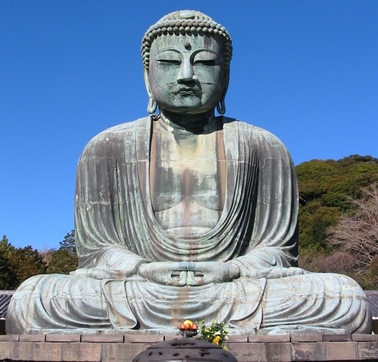Buddha- the title of Buddha is usually given to the historical founder of Buddhism, Siddhartha Gautama, although it can be applied to historical figures (both Buddhist and non-Buddhist) and many of whom may have been mythical. The dates the original Buddha lived is not certain, but it is believed that he died around the end of the 5th century. Due to varied information on his life, scholars are undecided on what is true. He was born into a noble family of the Sakya people, who lived near the borders of modern day India and Nepal. After getting married and having a son, he experienced some existential crisis. He was perceptive of mortality, and perceived the possibility of a solution to such problems. Buddha took up a wandering lifestyle of a homeless religious beggar. After studying under various religious teachers he adopted the practice of severe ascentism, for about 6 years. He found this to be ineffective and turned to more moderate practices, where he experienced a spiritual break through and was made a Buddha. He lived the rest of his life teaching his disciples what he had discovered, and advocating the development of meditative states. According to early Buddhists the Buddha offered his teaching in two levels; an introductory stage, where the simple model of pure life was offered, and a second stage where there were more advanced truths (known as the four noble truths).
Buddhist concept of emptiness- it questions our belief that the individual has a separate self and helps individuals see themselves in a relationship that connects us with the rest of the universe. An example would be us saying that a cup is empty. But what is it empty of? It could be empty of water, but full of air. The concept of emptiness is seeing how all things are connected (think Lion King when Mufasa is explaining the circle of life to Simba).
Buddhist concept of emptiness- it questions our belief that the individual has a separate self and helps individuals see themselves in a relationship that connects us with the rest of the universe. An example would be us saying that a cup is empty. But what is it empty of? It could be empty of water, but full of air. The concept of emptiness is seeing how all things are connected (think Lion King when Mufasa is explaining the circle of life to Simba).
The Four Noble Truths
1. Life is suffering
2. The origin of suffering is attachment
3. The cessation of suffering is attainable (un-attaching from your senses and unmaking sensual craving)
4. The cessation of suffering is attained by following the Eightfold Path
Karma: bringing upon yourself an inevitable result, whether good or bad, in this life or the next, through reincarnation
Dharma: conformity to the religious law, custom, duty, or one's own quality or character
1. Life is suffering
2. The origin of suffering is attachment
3. The cessation of suffering is attainable (un-attaching from your senses and unmaking sensual craving)
4. The cessation of suffering is attained by following the Eightfold Path
Karma: bringing upon yourself an inevitable result, whether good or bad, in this life or the next, through reincarnation
Dharma: conformity to the religious law, custom, duty, or one's own quality or character

 RSS Feed
RSS Feed